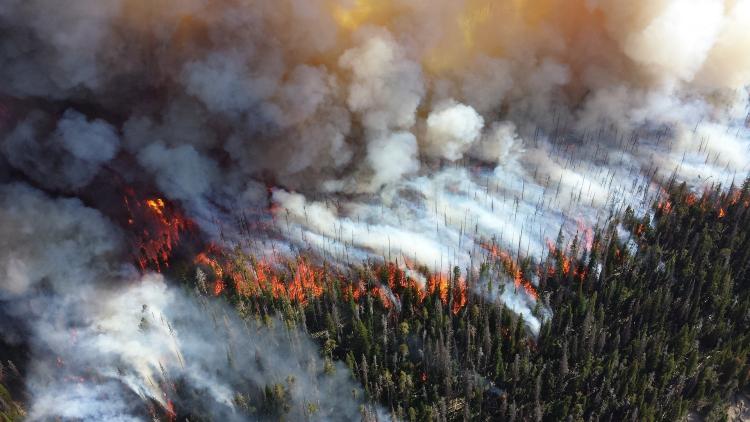Experts available on Western wildfires

Credit: Pixabay
As wildfires rage across Colorado and other parts of the Western U.S., CU Boulder experts are available to discuss these natural disasters. Experts at CU Boulder and the Cooperative Institute for Research In Environmental Sciences (CIRES) have also compiled a list of go-to resources that provide up-to-date information on how the wildfires are progressing, the smoke transport in the atmosphere, and impacts to air quality.
Climate change and ecosystems
Jennifer Balch is the director of CU Boulder’s Earth Lab and can discuss the increasing frequency of wildfires across the country. She has extensively studied the influence of human activity on wildfires in the United States.
Human health
Colleen Reid, assistant professor in the Department of Geography, studies how climate change affects human health, including how air pollution from wildfire smoke influences respiratory health.
Air quality and climate
Christine Wiedinmyer is the associate director for science at CIRES. She’s an atmospheric scientist who studies wildfires and the impacts of their emissions on air quality and climate.
Research news
A new CU Boulder-led study offers an unprecedented glimpse of what our beloved forests will look like in a few decades, suggesting that when forests burn across the Southern Rocky Mountains, many will not grow back and will instead convert to grasslands and shrublands.
People are starting almost all the wildfires that threaten U.S. homes, according to an innovative new analysis combining housing and wildfire data. Through activities like debris burning, equipment use and arson, humans were responsible for igniting 97 percent of home-threatening wildfires between 1992 and 2015, a CU Boulder-led team reported recently in the journal Fire. Lead author Nathan Mietkiewicz conducted the research as a postdoc in the Earth Lab, part of CIRES at CU Boulder.
Nitrous acid emissions from wildfires are spiking to levels significantly higher than scientists expected, driving increased ozone pollution and harming air quality, according to a new study co-led by CU Boulder.
Contact
CU Boulder media relations
cunews@colorado.edu


